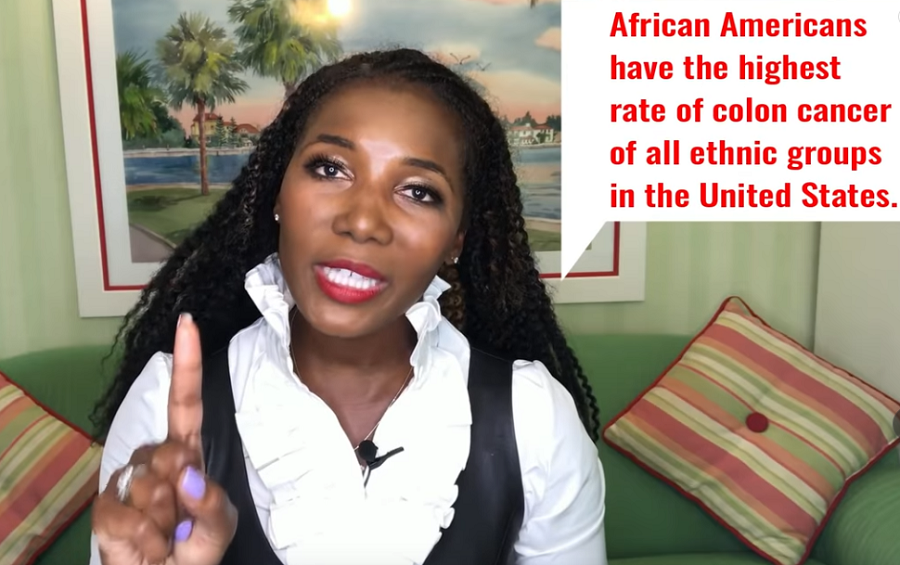Voices about colorectal cancer disparities

Frita McRae Fisher, MD
Pascale White, MD
“When we say disparity, that means that things are not fair,” says Pascale White, MD, Director of the Gastroenterology Clinic at the Icahn School of Medicine at Mount Sinai in New York.
“Why are we being diagnosed with colorectal cancer at higher rates? Why are we dying at higher rates? Something’s wrong with that.
There are three different kinds of barriers: patient barriers; physician barriers; and health system barriers.
And systemic racism is an underpinning to these barriers, as well. Once we know the problems, we can then try to solve them.”
A 5-minute video on Facebook with Sylvia Gonsahn-Bollie, MD.
Jamie Foxx
“If you’re a man or woman 45 or older, I’m talking to you.
We’re all busy and we think, when would we fit colorectal screening in? Well, fit it in. It just might mean more time with your family down the road.
I’ve lost good friends, young friends, to colon cancer.
Don’t make the mistake of waiting until you have symptoms or think that you have no risk because it doesn’t run in your family. Everybody needs to be screened.
A 1-minute video with Jamie Foxx from Stand Up to Cancer.
Candace Henley
Candace Henley, 35 and mother of 5 daughters, was diagnosed with colorectal cancer in 2003, after being misdiagnosed for years, and had 90 percent of her colon removed.
Denied Social Security disability, Henley became homeless with her children and tried to kill herself. Hospitalized in a psych ward, “I asked God for forgiveness and said I would do everything I could to raise awareness and save other people from the same fate I went through.”
In 2010, Henley started the Blue Hat Foundation which raises awareness of colorectal cancer in minority and medically-underserved communities.
A 4-minute video from the American Association for Cancer Research
“You can’t be scared to go see a doctor. You have to break that fear."

“It can be tough to talk about colon cancer screening amongst men, but it’s important to know that we are talking about things that are preventable,” says comedian Dannon Green.
“Since I’ve had prostate cancer, I’ve had four colonoscopies in the last 10 years. They are simple and painless. They can save your life.”
“The biggest obstacles that have caused men so many health problems historically have been machoness and lack of information. A lot of times a man won’t even go to a doctor unless his wife or his girlfriend are forcing him to go.
“You can’t be scared to go see a doctor. You have to break that fear. And once you break that, things will be much better for you healthwise.”
Source: “Annual Black men’s empowerment event will focus on colon cancer screening and early detection.” (January 19, 2022)
Actor Terence Howard Grieves for His Mother Who Died From Colorectal Cancer
“She shaped me as an actor as a musician, as a human being. So when my mother was diagnosed with colon cancer, it was like our whole family got cancer. And she died when she was only 56.
Hopefully my heartbreak is your wake up call. Screening finds pre-cancerous polyps so they can be removed before they turn into cancer. I’ve been screened. Please get screened.
I’d do anything to have my mother here. Please do all you can to stay around for yourself and for your family. Screening saves lives.”
A 1-minute video from the Centers for Disease Control and Prevention (CDC)
